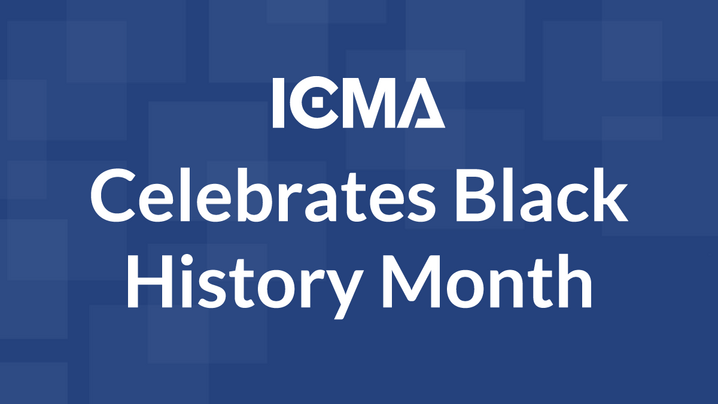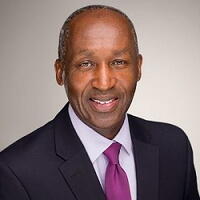
In honor of Black History Month, ICMA staff sat down with Executive Director Marc Ott to discuss his personal experiences as the first African American CEO of ICMA and the first African American to serve as city manager of Austin, Texas.
ICMA: Marc, how did you get started in the local government management profession?
Marc: It wasn't intentional. I will say that even as a little kid, I always had the interest…It really wasn't until [the last semester] of graduate school, when I thought I was going to go on to law school, that I had to do an internship and work for a city administrator, and that was my first real exposure to local government. During that period, I saw the impact that what we do at the local government level has on the everyday lives of people. I was really struck by that, enough that I changed my courses to pursue public service at the local government level, and I've been doing that ever since with absolutely no regrets.
ICMA: According to the ICMA 2012 State of the Profession Survey, roughly three percent of local government CAOs were African American at that time. How does that compare to when you started in the profession?
Marc: I can just tell you that when I started, I think the profession was fairly sparsely populated [focused on] African-American managers. And not just managers, but African Americans period.
When I look around today….I certainly think that representation is such that we need to encourage more African Americans and other minorities and women [to come] into the profession--that larger question of diversity. How many? What's the right percentage? What's the right number? I don't know. But [we] certainly [need to encourage] greater diversity, not just with African Americans, but across the board.
ICMA: You were the first African-American manager in Austin. What was that experience like for you?

I was almost overwhelmed by that…. [Not only] for the love of the profession and [the] love of public service but also because I was “the first” and feeling that if there was going to be a second, I had to do a good job.
That's what it felt like to me, [and] it feels that way here, too, in terms of being the first person of color, not to mention African American, to serve in this position of executive director of ICMA. I'm proud of the fact that I'm African American, just [as] I'm sure you're proud of who and what you are and what you represent. And that does have something to do with my drive in life, especially given the history of this country, and how we came to be here. It's not lost on me. I don't want it to be lost on me. I don't want it to be lost on you. That's why it's good we're doing this [interview] today.
ICMA: Recently the conversation within many organizations has been about equity and inclusion, and the things that we're doing to encourage it. How do you think these conversations could impact the profession, for example, by potentially increasing the number of African Americans and other underrepresented groups within the local government management profession?
Marc: I see it as being applicable to more than just representation in employment, whether it be this profession or something else. I think equity can be about the distribution of resources. Is that being done in an equitable way? You can have a diverse environment and still have a lack of inclusion.
When I was in Austin, we hired a person to [serve] as chief equity and inclusion officer. The intent wasn't just about numbers in terms of the demographics of our workforce, but it was about everything that we did. That perspective needed to be brought to the table when we were working on the city's budget or [any other] issue. We thought that equity and inclusion had some relevancy and that we needed to have that perspective at the table while we were having those conversations and while decisions were being made. Because ultimately, it's about being equitable and not leaving people out or having them become disenfranchised.
ICMA: Any last words that you'd like to share about Black History Month?
Marc: I think it is important that we pause each year to contemplate black history in America. One of the reasons I believe that is because when I think about my journey through school, [I realize that] black history wasn't really taught.
Probably one of the best examples I can come up with as to why it's important [was highlighted] in a recent movie called Hidden Figures. At my age, and I suspect that I'm not alone, I never knew that story. I remember watching John Glenn and Gus Grissom…on a small black and white TV….And not once did the backroom story get told. No one ever knew if it was true in the movie that Glenn wasn't prepared to go until the lady, who happened to be black, did the calculations….I think it is important that we pause to reflect... In some respects, it's almost a tragedy that we have to pause. But because of the absence of black history in the educational system, it's an important month.
New, Reduced Membership Dues
A new, reduced dues rate is available for CAOs/ACAOs, along with additional discounts for those in smaller communities, has been implemented. Learn more and be sure to join or renew today!
